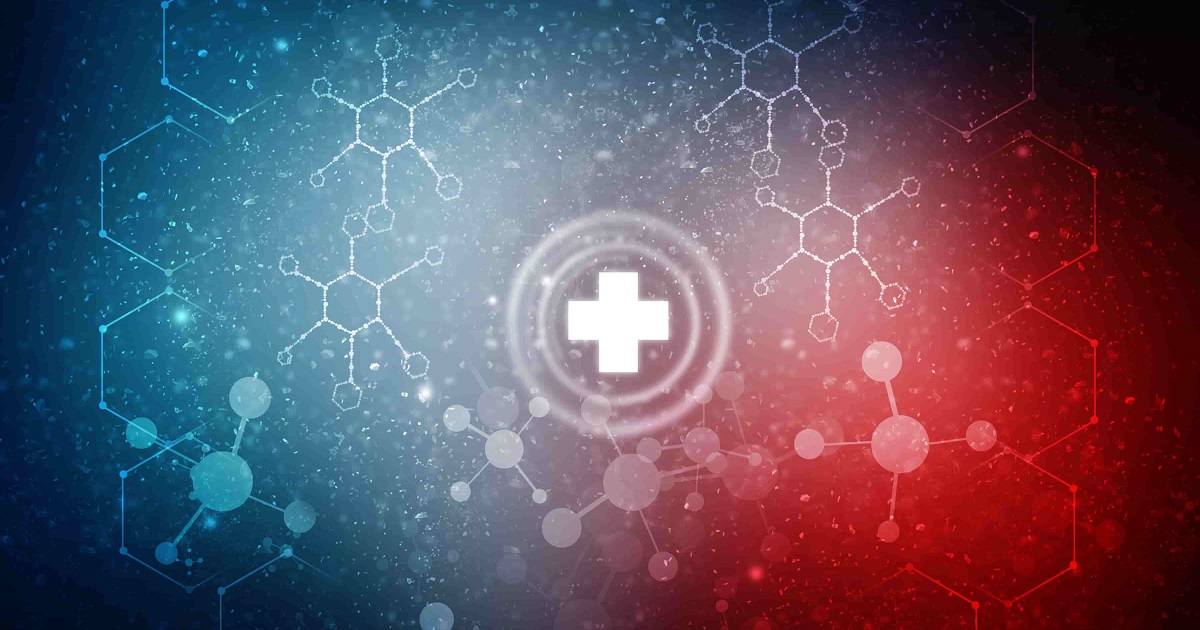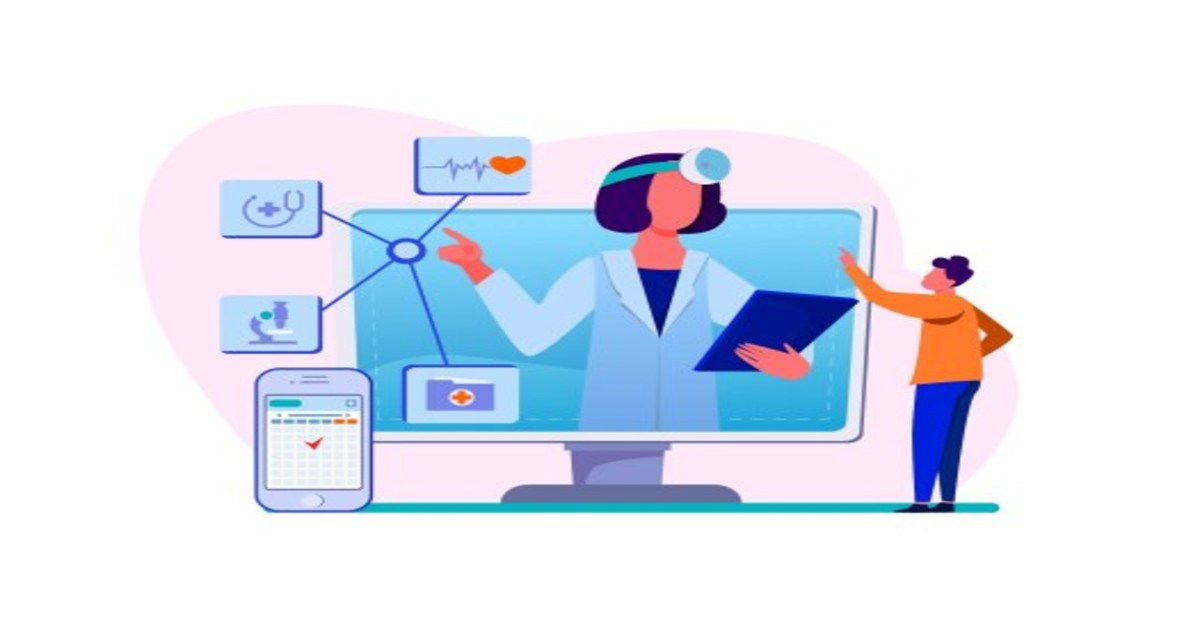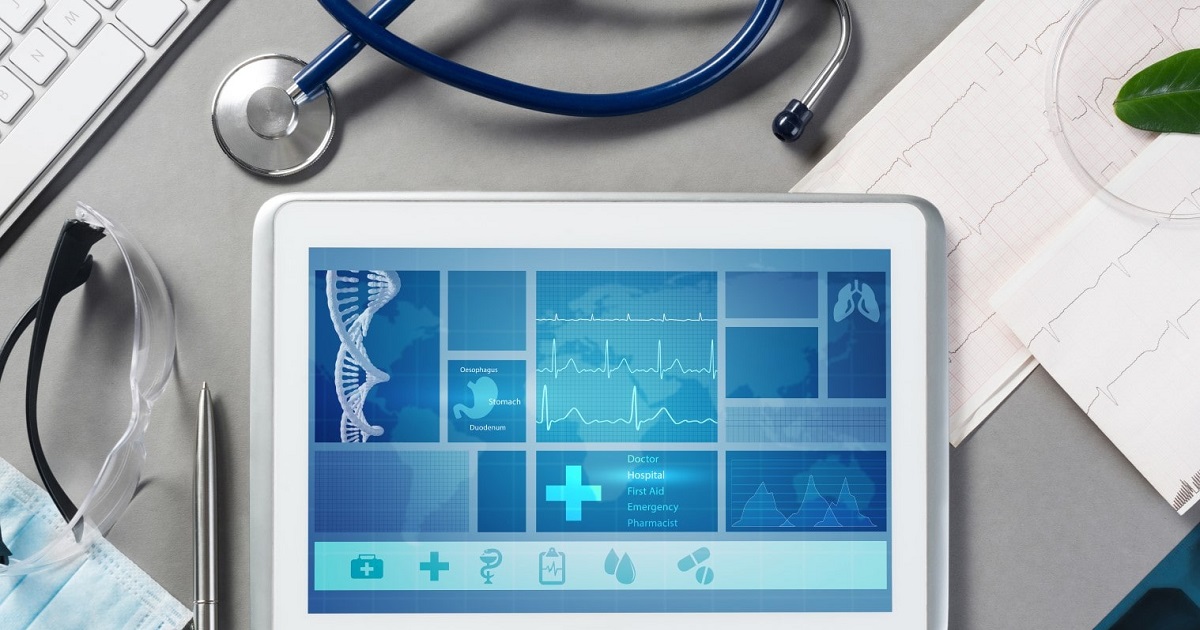
Healthtech Security
Article | November 29, 2023
Discover the potential of EHR implementation in revolutionizing clinical processes. Uncover strategies for addressing EHR ethical issues, ensuring integration that prioritizes patient-centered care.
Amidst the fusion of healthcare and technology, integrating electronic health records (EHRs) has emerged as a transformative element in modern medical practice. As a digital repository for a patient's medical journey, EHRs present unprecedented prospects for elevated care quality, improved data accessibility, and cost-effectiveness. Nevertheless, these advancements bring forth an array of EHR ethical issues that demand meticulous attention. In this context, establishing and adhering to the best practices for the ethical training of EHRs assumes paramount importance and a moral obligation. By skillfully navigating the intricate convergence of technology, patient confidentiality, and conscientious healthcare, these ethical EHR best practices illuminate the path toward a future where innovation and ethical principles harmoniously coexist.
1. Upholding Privacy and Confidentiality
Revealing a patient's information to external parties should strictly happen with the patient's explicit consent or within the parameters defined by legal regulations. Data stemming from clinical interactions is confidential and requires rigorous protection. The effective operation of EHRs requires authorized access by healthcare institutions, insurers, and related entities. Access by users is contingent upon predefined role-based privileges. The administrator identifies users, specifies the extent of information accessibility, and allocates exclusive usernames and passwords. Users must be conscientious about responsibly utilizing the information they access within their designated roles. Therefore, assigning user privileges plays a pivotal role in securing medical records. However, while regulating data access remains crucial, it doesn’t completely ensure confidentiality. Strengthening security through comprehensive privacy and security protocols remains essential for reinforcing patient data's inviolabilit.
2. Safeguarding Against Data Breaches
Ensuring patient privacy and safeguarding sensitive medical data is paramount in EHR ethical training. The imperatives of inadequate data security, encompassing compromised medical information, unauthorized access due to weak password safeguards, and the lack of encryption, accentuate the immediate need for a holistic approach. Employing strategies such as secure cloud storage, robust password protocols, two-factor authentication, and encryption is pivotal in enhancing data security, preventing the mishandling of patient records, and abiding by ethical standards. The potential legal and financial consequences of breaches underscore the criticality of these practices in maintaining patient trust and confidentiality within the digital healthcare domain.
3. EHR System Implementation
The integration of EHRs within healthcare organizations poses significant challenges, including resource waste, provider dissatisfaction, diminished patient trust, and potential safety risks. Successful EHR development, implementation, and upkeep demand substantial investment and collaboration among stakeholders, including clinicians, IT experts, educators, and consultants. Clinicians' active engagement is often underestimated, leading to the failure of EHR projects; therefore, clinician-led guidance is crucial in tasks such as EHR selection, workflow design, and quality improvement. Thoroughly mapping workflows before selecting an EHR is crucial, while maintaining user-friendly interfaces remains essential for success. Neglecting these aspects can reduce efficiency, compromise care, and increase safety threats. By prioritizing comprehensive planning, engaging clinicians, and optimizing user interfaces, healthcare institutions can ensure ethical and efficient EHR integration, ultimately enhancing patient care and safety.
4. Maintaining Data Accuracy
Upholding data accuracy stands as a fundamental principle in the ethical EHR domain. The integrity of information guarantees its unaltered and precise nature, contributing significantly to the enhancement of patient safety, reduction of healthcare errors, mitigation of health disparities, and betterment of public health. Nevertheless, concerns have been voiced regarding the reliability of data input into electronic records. The improper utilization of functionalities such as 'cut and paste' can lead to misleading portrayals of a patient's condition and treatment, breaching ethical standards. This practice poses elevated risks to patients and increases the liability of clinicians and institutions. Challenges also arise from drop-down menus that limit a clinician's choices, potentially giving rise to substantial errors, especially under time constraints. The collaborative efforts of clinicians and vendors can address software concerns, promoting user-friendly, reliable EHRs while tackling EHR ethical issues. Furthermore, data loss during transfers raises pertinent concerns about the accuracy of the database, a critical aspect as patient care decisions hinge on this data.
5. Guaranteeing Data Authenticity
The assurance of documentation integrity pertains to the accurate and precise nature of the comprehensive health record. This includes principles of information governance, identifying patients, validating authorship, handling amendments and corrections in records, and auditing documentation validity while submitting reimbursement claims. EHR tools offer flexible documentation options through the utilization of templates and smart phrases, assisting in precise record-keeping. However, if these tools are misused, doubts about data integrity can arise, making information unreliable and possibly raising concerns about fraudulent activity. Established policies and procedures, including audit functions, must be in place to ensure proper billing. With adequate safeguards, records may accurately represent the patient's condition at admission and over time. Providers must understand the importance of reviewing and refining default data to ensure that only patient-specific information for that visit is recorded. In contrast, irrelevant data from default templates is removed.
6. Validating Dictation to Prevent Errors
Voice recognition systems lacking a validation step pose considerable challenges in maintaining data accuracy and preventing documentation errors within organizations, particularly when it comes to ethical issues with electronic health records. EHR companies need to implement a protocol requiring providers to promptly assess, modify, and validate dictated information. Given these documents' frequent use and sharing, precise and high-quality documentation in EHR systems is of utmost significance. The adoption of EHRs has led to substantial shifts in provider workflows and documentation processes. However, providers still need to clearly outline or fully understand comprehensive best practices for maintaining high-quality documentation in EHRs. Advancements are necessary to enhance documentation tools and methods, with a renewed emphasis on the essential aspects of data accuracy and quality. This should precede the widespread implementation of interoperable health information exchange initiatives.
7. Ensuring Accurate Documentation
Maintaining the integrity of documentation is compromised when incorrect information finds its way onto the wrong patient's health record. Patient identification errors can influence clinical decisions, endanger patient safety, violate privacy and security, and lead to redundant testing and escalated expenses for patients as well as providers. The propagation of patient identification mistakes can rapidly expand within EHR, personal health records, and Health Information Exchange (HIE) networks as information disseminates. Failing to implement advanced front-end solutions that incorporate robust matching algorithms or innovative techniques like biometrics or fingerprinting can expose organizations to risk. EHRs can incorporate targeted alerts to anticipate safety problems, like blood type inconsistencies or allergies, during treatment, addressing EHR issues. Organizations must institute a patient identity integrity program, integrating performance improvement metrics to monitor error rates and duplicate records in their electronic master patient index. Policies and procedures must ensure the accuracy of critical demographic data, facilitating the linkage of records within and across systems. Addressing the initial point of data capture as a primary front-end verification is also vital within policies.
8. Preserving the Authenticity of Audit Trails
Effective audits are crucial to ensuring that the health record documentation aligns with the reported level of service, fulfills reimbursement requirements set by payers, and guarantees that only authorized personnel access patient medical records and make entries. The audit trail must encompass the user's name, the triggering application, workstation details, the specific document, a description of the audited event (such as amendments, corrections, or deletions), and the timestamp. This audit trail outlines modifications (including deletions) within the health record and provides auditors with a foundation for compliance audits. Inadequate audit trail functionality within EHRs raises concerns about the integrity of health record documentation, potentially exposing organizations to legal liabilities and inadvertently fostering or shielding criminal activities. It may become challenging to ascertain if corrections or amendments were executed, who authorized the changes, or the nature of the modifications. In addition to the inherent unintentional errors that documentation might encounter, audit trail functionality can aid in detecting instances where records are altered to obstruct the disclosure of detrimental information. Organizations can utilize EHR trends to leverage audit trail features for identifying and analyzing patterns in health record usage. Typically, users can generate reports over specific time frames categorized by provider or provider type, with results directed to a compliance committee or the organization's governing body.
9. Fostering Compliance Awareness
Enhancing ethical EHR training involves a strategic focus on ensuring providers are well-versed in compliance and legal risks, starting from the EHR training phase. To address EHR problems, organizations should implement educational initiatives aimed at mitigating compliance issues. Staff education must emphasize the integrity of health record documentation, with a continuous program monitored and provided quarterly or annually. Addressing the 'who, what, why, and how' ensures a solid grasp of organizational practices that uphold individual best practices, encompassing identifying potential fraud, universal and administrative security measures, data validity, authorship, continual education's significance, and strategies for daily fraud prevention.
10. Conducting Feedback Sessions
Contrary to common assumptions, ongoing training is essential post-EHR implementation. After installing the EHR and initiating patient interactions, challenges inevitably emerge—be it staff unfamiliarity with functions or the need to revamp workflow processes. Promptly identifying these concerns to prevent errors and swiftly resolving them involves collecting feedback from EHR users among the staff, particularly in relation to EHR ethical issues. During the weeks after the system's launch, contemplate arranging routine meetings to gather insights. Ensuring diverse representation, including clinical staff, physicians, administrators, billing, and front desk personnel, is crucial. Seek input on their adaptation to changes and areas requiring improvement. Determine if specific training concepts need reinforcement. Surveys can be used in place of frequent meetings. Subsequently, prioritizing problem areas aids focused resolution by promptly addressing critical matters. The introduction of incremental changes helps staff adapt to the EHR seamlessly, safeguarding patient care continuity during the transition.
The Path Ahead
Following these ethical EHR training best practices ensures the accuracy and reliability of patient data, leading to improved clinical decision-making and patient safety. By maintaining documentation integrity, professionals can confidently provide quality care and reduce the risk of errors. Ethical EHR training further strengthens compliance with legal regulations, safeguarding both the organization as well as the healthcare provider from potential legal liabilities. Moreover, adhering to best practices promotes efficient workflows, enhancing productivity, and streamlining operations. Patient trust and confidence are strengthened as professionals demonstrate their commitment to data security, confidentiality, and ethical conduct. Ultimately, by upholding ethical EHR training standards, professionals contribute to a robust healthcare system by fostering positive patient outcomes, maintaining trust, and supporting the principles of ethical healthcare delivery.
Read More

Digital Healthcare
Article | November 29, 2023
Before we discuss the importance of telehealth and how it is changing the nursing industry in general, it is important to understand what telehealth is all about. With the advent of new-age technologies and their impact on the fast-paced, growing population, medical health is an essential department that requires special attention. One’s health is of utmost importance, and to enhance the medical facilities, we as responsible citizens and experts in this particular field must come up with novel and quick solutions to provide optimum precaution and cure. Hence, one of such technological achievements is telecommunication,s and by utilizing such a useful resource, health-related services too can be offered. Telehealth promotes the distribution of various services related to medical health through electronic devices and telecommunication technologies. What can one possibly do if he or she lives in a different country and is pushed to an emergency situation where he requires medical advice from a physician who lives in another corner of the world? Of course, through telecommunication devices, the whole process of exchanging information becomes smoother and easier. Several health-related services such as medical advice, medical care, monitoring, education, remote admissions, and intervention can be extended to a long-distance patient with the help of telehealth facilities. Hence, the contemporary picture of health and medicine has been radically improved with the introduction of these electronic telecommunication systems.
Read More

Health Technology, Digital Healthcare
Article | July 14, 2023
Over the last couple of years, the healthcare industry has witnessed significant technological advancements transforming numerous procedures and treatments, ranging from magnetic resonance imaging scanners and radiotherapy to antibiotics and anesthetics.
In addition, the introduction of novel technologies (new pharmaceuticals and treatments, new equipment, new social media support for healthcare, etc.) has further provided air to the fire for innovation in the sector, encouraging healthcare providers to upgrade their technological infrastructure.
Medical Computers Paving the Way in Healthcare
Use of modern technology, such as medical computers, is becoming more and more crucial in healthcare institutions, including hospitals, clinics, and specialized treatment centers. These computers are used in hospitals for a variety of purposes, from better laparoscopic, minimally invasive surgical techniques used by surgeons to patient tracking and health monitoring gadgets.
Medical computers are becoming more prevalent as they help medical professionals make faster, more reliable, and more accurate decisions. Additionally, they enable the emergence of new data, integrate advanced technologies such as artificial intelligence, and enhance decision-making processes, which are particularly crucial when it comes to medical diagnostics and treatment. New computer and technology solutions in the healthcare sector are enabling a wide range of outcomes that were previously unimaginable. They assist medical practitioners in both data collection and data interpretation, enabling them to make decisions that are thoroughly informed by insight. Here are some of the applications that have experienced immense transformation in recent years
Hospital Information Systems
Medical Personnel and Staff Management
Data Analysis in Medicine
Medical Imaging
Computer-assisted Therapy
Laboratory Computing
Critical Patient Care
Computer Assisted Decision-making (CMD)
Patient Check-In and Status
Growing Adoption Encouraging Product Launches
With technologies like medical computers becoming essential for processing numerous day-to-day operations in the healthcare industry, the need for these computers is growing at a rapid pace. Hence, a number of medical equipment providers are emphasizing on offering cutting-edge solutions to modern healthcare facilities.
For instance, in 2021, American Portwell Technology, Inc., a world-leading innovator of the Industrial PC, unveiled two certification-ready all-in-one medical computers - MEDS-P2410-P200 (23.8″) and MEDS-P2210-P200 (21.5″) with features such as true-flat capacitive touchscreen and optional hot-swappable batteries.
Read More

Health Technology
Article | May 18, 2022
Do you know you can now wear technology?
With the help of wearable technology, it's now easier to keep track of useful information in one go! This go-to technology has made people’s lives easier and smoother health-wise.
In the last five years, more people have started using wearable technology to monitor health data and live healthier lifestyles.
According to the Deloitte Global Survey, today, more than 80% of people are interested in using wearable technology. Statista also studied that the ear-worn wearable technology market will be worth more than 44.16 billion US dollars by 2023. These data show that customers are gravitating toward wearable technology due to its simplicity and convenience.
The Tech is Getting Smarter
Wearable technology has enabled the concept of self-checking, evaluation and monitoring of certain health conditions.
The Internet of Things (IoT) technology is transforming and improving the entire lifestyles of millions of people. So it's no surprise that the technology is spreading. Thanks to IoT and AI, which have pushed these technologies into individuals’ hands in the form of smartwatches, fitness bands, and other devices. In this case, app development has also been a critical success factor.
Consumers of all age groups actively use wearable technology for multiple physical benefits, such as monitoring daily activities (running, walking), water intake, heartbeat, sleep cycles, blood pressure, oxygen level, and mobility levels. In fact, the tech helps them to stay motivated by maintaining and extending their good habits.
Wearables can measure these characteristics through an effective data model that is instantly responsive. The readings can be saved, displayed, or forwarded to a doctor for medical study. This interface of wearable technology saves money and time traveling to clinics, hospitals, GPs, and other medical facilities.
The next feature that only wearable technology provides is reminders and inspiring information! Due to the addition of automatic functionalities, users have invested considerably in wearables and sparked the usage at the current time.
Furthermore, wearable technology is also seen in other medical devices such as ECG monitors, which is again a cutting-edge consumer electronic device that users can use to measure electrocardiograms at home. A Deloitte study found that due to the rising demand and supply together, nearly 200 million wearable gadgets will be marketed globally by 2023.
Transforming Healthcare Towards Intelligence
The pandemic accentuated the importance of wearable technology the most, particularly for health monitoring. As a result, the technology was available in every second home.
Wearable innovation is exceptional with the advancements in sensors, artificial intelligence, machine learning, and algorithms. Sensor data provides insights regarding an individual's activity levels, cardiac pattern discrepancies, and other aspects. For example, many companies and manufacturers employ PPG, Raman spectroscopy and infrared spectrophotometers to enable blood pressure monitoring features in smartwatches and portable medical devices.
The combination of technology with intelligence is creating a whole new world of healthcare where individuals can track, record, and improve their health issues in a lesser timeframe.
A Committed Future of Healthcare
So, will technology for health improvement thrive?
The answer is yes. Wearable technology delivers real-time health data and allows consumers to improve their health without incurring high costs. Consumers' willingness to share their data with healthcare professionals indicates a surge in future demand for wearable technology gadgets.
Read More